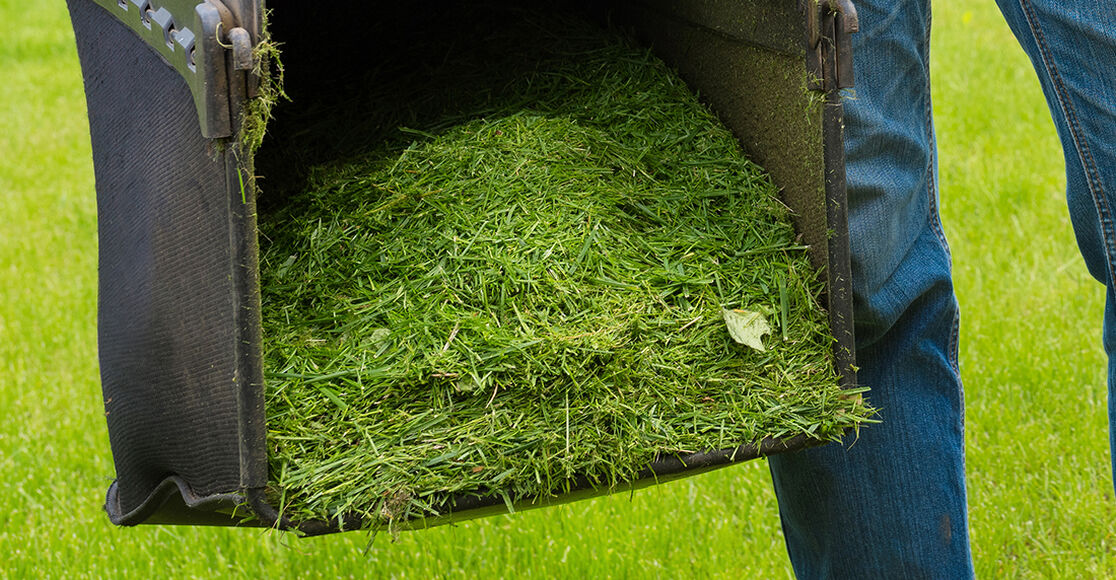When mowing season rolls around, people often wonder: should I bag my grass or should I mulch grass clippings? Adopting one of these methods is important in preventing thatch from forming – thatch inhibits proper growth, as it can prevent nutrients from the sun, water and air from reaching grass roots.
But before you make a decision to mulch or bag grass clippings, it’s best to understand the benefits of both, and when you might choose one option over the other.
Three Ways to Process Grass Clippings
Troy-Bilt® lawn mowers process grass clippings in up to three different ways, depending on the type of blade on the mower, along with other mower configurations. The mower may discharge clippings to the side, it may collect grass via an attached bag, or it may mulch the clippings as it cuts the grass.
Side discharging and mulching both return clippings to the lawn, and both can help to add nutrients back to the soil. Prior to the development of mulching blades and mowers, side discharge was the primary means of mulching clippings. Today, some mowers still offer this option, even if they are equipped with a blade specifically designed for mulching. Side discharge configurations may allow for fast, efficient mowing, but may also require cleanup of driveways, sidewalks or roadways where clippings have been dispersed.
When Should You Bag Grass Clippings?
Both bagging and mulching will decrease thatch buildup, but the real draw of using a bagger is the aesthetic it delivers to your yard. Baggers collect grass clippings, providing homeowners with a clean-cut, well-kept look; most grass clippings are collected in the bag, leaving your lawn with a fresh landscape. Grass clippings should be bagged if your lawn’s grass is tall, if there are leaves covering the grass, or to help control weeds and prevent them from spreading. Keep in mind, you may have to empty the bagger more than once during mowing, depending on your yard size.
Wondering what to do with grass clippings after mowing? A bagger that collects grass clippings is also useful for sucking up leaves from your lawn in the fall; collected grass clippings and leaves can even be added to your compost pile.
When Should You Mulch Grass Clippings?
Rather than collecting and removing grass clippings like bagging does, mulching serves to finely chop up clippings that can then be left on your lawn. This not only saves time and energy (versus bagging), but the mulch also can add vital nutrients back into the soil once the clippings decompose. And, if you have the proper mowing height set, the clippings can quickly break down.
This is done by replacing the standard blade on your walk-behind or riding mower with a mulching blade and plugging up the discharge chute. Check the operator’s manual that came with your mower to see what type of blade your mower is equipped with. Many models of Troy-Bilt walk-behind mowers come with a mulching kit included. For most models of Troy-Bilt riding mowers, mulching kits are sold separately.
Mulching lawn mowers have blades that allow grass clippings to continually circulate and be cut into smaller pieces of grass (like a blender). The size and spread of clippings from mulching allows for quick decomposition and helps replenish your yard with nutrients for a natural fertilizer.
Mulching is also well-suited for large yards, as bagging can require more time and effort due to emptying when it reaches capacity. However, keep in mind that it’s recommended to cut grass more frequently when using a mulching setup. If the grass grows too tall, it may not be chopped finely enough, which could cause grass to be matted and result in larger clippings that won’t be able to decompose at an appropriate rate.
Which Option Is Right for Me This Season?
Are you a bagger? Mulcher? Do you switch between them depending on how clean or well-fed you want your lawn to look? (Or just because you can?) There’s no right or wrong answer, as long as you monitor the health of your yard and give it the care it needs.
